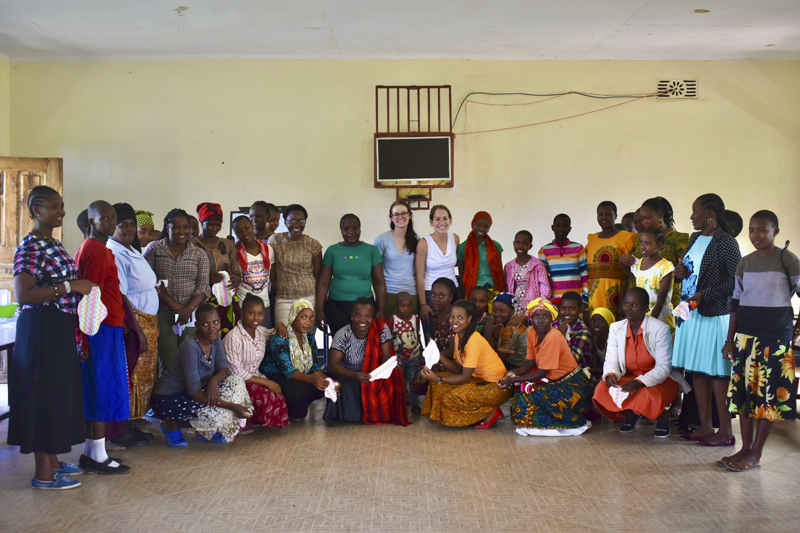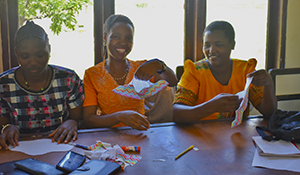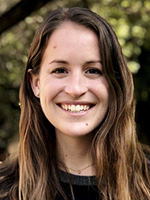UCLA Women in Science Group Awarded $20K to Design Lab Kits for Girls in STEM

Danielle Butts
Students with WS2 members in a 2019 workshop at Majengo Children’s Home in Tanzania
More than 5,000 elementary through high school students in East Africa will soon have new science laboratory kits thanks to a recent American Physical Society award to Women Supporting Women in the Sciences (WS2).
WS2 is an international initiative launched in 2016 by graduate students and postdocs from the U.S. and Tanzania in support of women and outreach efforts to elementary and secondary-level female students. UCLA materials science and engineering graduate student Danielle Butts is a co-lead on the WS2 team, which is one of the three projects that received grants from the society’s 2020 Innovation Fund.
The $20,000 award will enable WS2 to assemble four international teams and design low-cost, science laboratory kits in 2021-2023 for more than 5,000 students in East Africa. Each team will design two physics or materials science-focused lab kits — one for primary school students and the other for secondary school students. Since most science laboratories are taught with topics catering to the interests of boys, the teams will focus on constructing and delivering kits relevant to the everyday lives of local girls and women in order to promote their interest in science, technology, engineering and math.

Along with Butts, the WS2 lab-kit project include co-leads Jill Wenderott and Sossina Haile from Northwestern University in Illinois, Julie Fornaciari from UC Berkeley and Joyce Elisadiki from University of Dodoma in Tanzania. Together, they will help organize the teams, facilitate meetings with educational consultants in the U.S. and East Africa, and provide training workshops for the teachers. In order to keep the cost down to less than $2.75 per kit, the group will utilize materials easily available to educators around the world.

The team will start the lab-kit design process in early May and continue through the end of August. WS2 welcomes UCLA students and other volunteers interested in joining the design team to apply here through March 31.
As an engineer, Butts has always wanted to use her problem-solving skills to make the world a better place. In 2019, she attended the African Materials Research Society (AMRS) conference in Arusha, Tanzania, where she gave a presentation on a project with collaborators from UC Berkeley and the Nelson Mandela African Institution of Science and Technology (NM-AIST). The co-founders of WS2 were also presenting about their work to form mentorship networks between women in the U.S. and Tanzania. After meeting and exchanging ideas at the conference, the two groups decided to work together to develop a variety of women-focused science projects.
“UCLA Engineering has encouraged me to think about how childhood education can be improved so that more women, especially women in underserved communities, can become interested in science and eventually apply to higher education institutions such as UCLA,” she said.
For fellow students looking to engage in humanitarian endeavors, Butts suggests they get involved in campus organizations that allow them to identify their unique skills and interests.
“Then you can find humanitarian causes that allow you to help people in a way that takes advantage of your individual skill sets,” Butts said.
In addition to the lab kits, WS2’s past initiatives have included professional development workshops geared toward supporting women in STEM at the secondary and university levels. Learn more about the projects.
Chloe Slayter contributed to this story.
